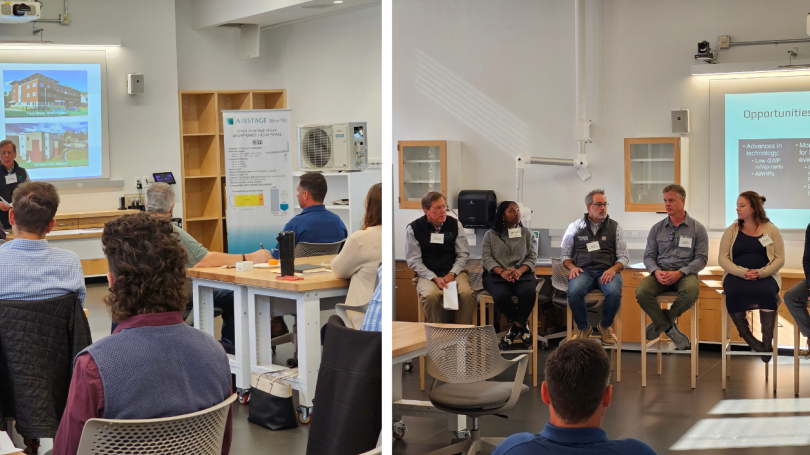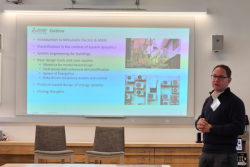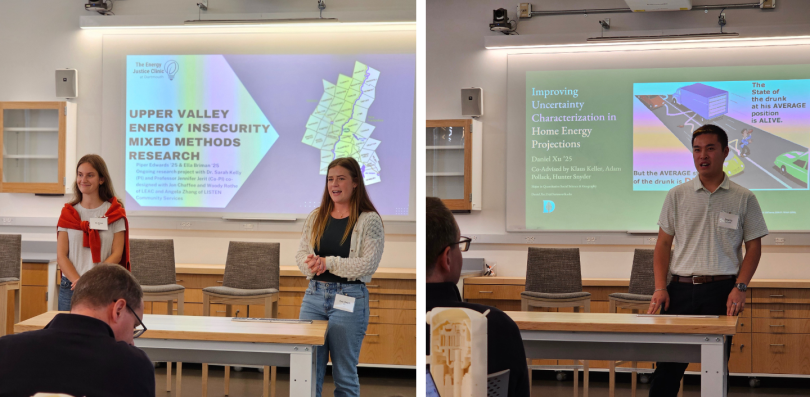

On October 24, more than 30 participants from diverse backgrounds—manufacturers, suppliers, researchers, community nonprofits, local governments—gathered at the Irving Institute to discuss challenges and opportunities for home energy transitions in New England, with a deep focus on heat pump technology. Heat pumps are energy-efficient alternatives to furnaces and air conditioners, which can reduce energy usage by up to 75%. In an effort to reduce energy demand, various incentives, including federal tax credits, have helped catalyze interest in and deployment of heat pump technology.
Attendees learned from one another how heat pumps work in the real world–including for multifamily buildings and low- to moderate-income (LMI) households–and about the challenges surrounding heat pump installation and maintenance, workforce development, and federal incentives. They also dove into how partnerships with academia could help address ongoing challenges. Key themes that emerged included accessibility, technical support, modeling needs, and innovative collaborations to make heat pumps viable across varied socioeconomic settings.
One session featured implementers and changemakers who have confronted the realities of spurring heat pump installations. Twin Pines Housing Trust, Vermont Adult Learning, Rewiring America, and Efficiency Vermont each shared their program objectives, challenges, and successes. Twin Pines has deployed air-source heat pumps for LMI housing with significant resident satisfaction, and has also navigated long-term maintenance challenges. Vermont Adult Learning is preparing the workforce to install and maintain heat pumps. Rewiring America addressed the crucial need for trust-building with disadvantaged communities through community engagement as well as the criticality of support systems to simplify access to complex incentives. Efficiency Vermont showcased its broad energy programs and heat pump incentives, noting the emergence of a mature market and the strength of their statewide contractor network for installations.

In a keynote presentation, Chris Laughman, Senior Principal Research Scientist at Mitsubishi Electric Research Laboratories discussed systems engineering and dynamic modeling, illustrating the potential for evolving heat pump designs and electrification. His presentation covered advanced modeling techniques and tools essential for improving energy efficiency and resilience. Researchers also shared insights on uncertainty characterization in energy projections, highlighting the value of precise modeling for both manufacturers and policymakers.
The session concluded with a presentation by students who work with Dartmouth's Energy Justice Clinic, co-led by Dr. Sarah Kelly, who discussed their community-based energy insecurity research, and then a final student presentation about improving modeling techniques, underscoring the workshop's focus on linking technology with community needs.

Many thanks to the team of faculty, researchers, and staff who organized this important workshop.
Lead Organizers:
Organizing Committee:
The workshop was supported by: Thayer School of Engineering, the Arthur L. Irving Institute for Energy & Society, the Nelson A. Rockefeller Center for Public Policy, and the Neukom Institute for Computational Science.